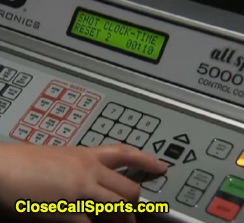MLB's pitch clocks, already a Minor League mainstay, date back to 2015 when Double- and Triple-A adopted a 20-second version after the 2014 Arizona Fall League's 2014 pitch clock experiment.
2022 MiLB Pitch Clocks will vary from 14 seconds with no runners on base to either 18 seconds with runners on (Double-A and below) or 19 seconds with runners aboard (Triple-A). 2021's time limits, respectively, were 15 seconds with the bases empty and 17 seconds with runners on. Batters must be in the box and alert to the pitcher with nine seconds remaining on the clock (eight seconds in 2021).
In a similar vein, all Low-A leagues will have a pickoff attempts limit of two per plate appearance, while High-A will employ a pitcher-step-off rule designed to increase stolen-base attempts by forcing pitchers to fully step off the rubber before attempting a pickoff.
Defensive Shifts will be rendered illegal in Single- and Double-A such that teams will be required to have a minimum of four players within the infield, with at least two of those entirely on either side of second base. The pitcher does not count. If a team has a five-player infield, the fifth player can play on either side of the infield.
Bases Will Be Bigger, increasing from the standard 15 inches-square configuration to an 18-square inch base that is four-and-one-fourth inches in length on each side.
An Automated Ball/Strike System style RoboUmp system will be used in Triple-A West (Pacific Coast League) and at Triple-A East (International League)'s Charlotte ballpark after its use in the Atlantic League and Low-A Southeast MiLB League.
MLB Adopts the Tmac Challenge System...in a manner of speaking. When Tmac suggested a zero-margin-of-error challenge system in 2019, we discussed the difference between a finite challenge system with zero-error called the Trajectory Measured by Automated Caller (TMAC; simpler, but less accurate) vs a challenge system which employs a margin-of-error called the Graphic Inaccuracy Logic system (GIL; more complex, but more accurate). Perchance to be renamed to Latent Information Not Definite, Scientific Accuracy Yielded.
At the time, the proposal that seemed to have a greater chance of being used in professional baseball was the zero-error TMAC system, as MLB has recently trended toward embracing technology without admitting potential shortcomings.
Related Post: Fixing the Strike Zone - Pitch Challenge Proposal (10/28/19).
The MiLB challenge system will follow similar ground rules at its Low-A Southeast testing grounds. After the umpire calls a ball or strike, the old-fashioned way, the pitcher, catcher, and batter (alone) will have the ability to immediately appeal the umpire's call, with a maximum of three unsuccessful challenges per team, similar in theory to existing Replay Review rules.
Video as follows:














